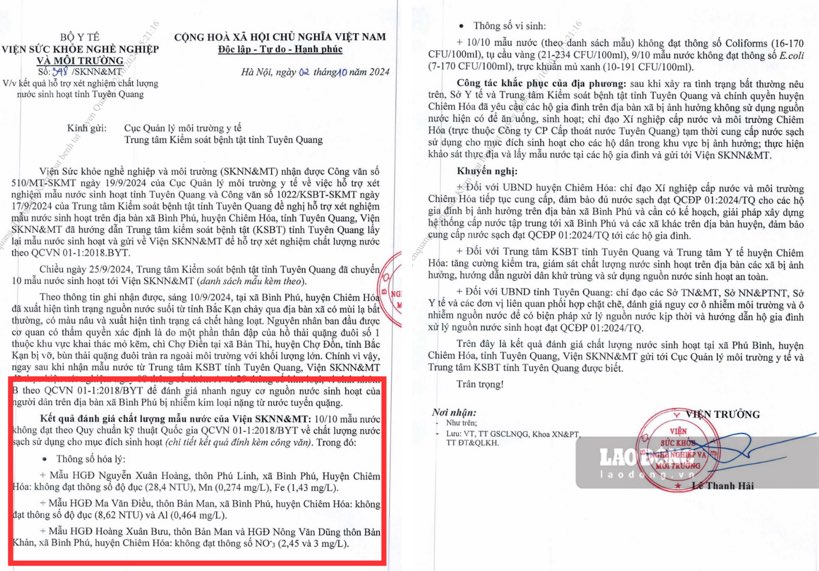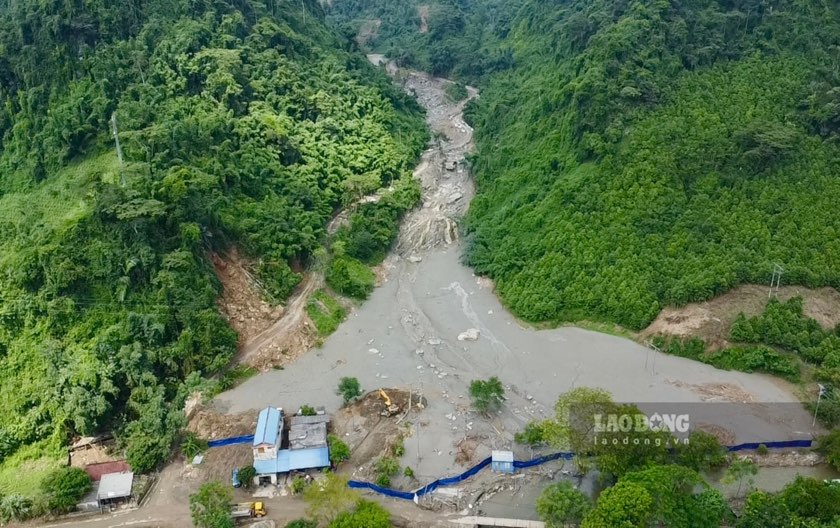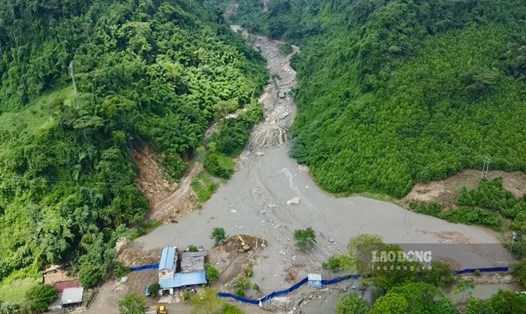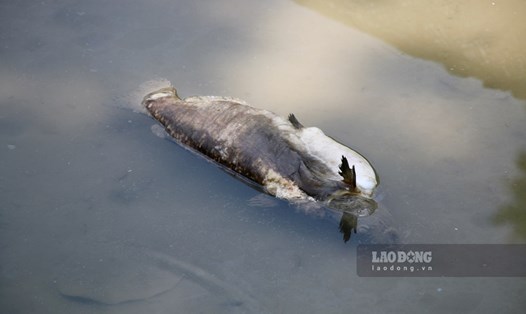On October 2, the Ministry of Health issued document No. 348/SKNN&MT on the results of supporting testing of domestic water quality in Chiem Hoa district, Tuyen Quang province after the zinc and lead ore sludge dam of Bac Kan Nonferrous Metals Company Limited broke.
10 water samples were taken in Binh Phu commune, Chiem Hoa and sent to test 8 group A parameters and 29 group B metal and microbiological parameters to assess the risk of heavy metal contamination from ore processing water.

The results showed that 10/10 water samples did not meet the National Technical Regulation QCVN 01-1:2018/BYT on the quality of clean water used for domestic purposes in terms of physical-chemical and microbiological parameters.
On that basis, the Institute of Occupational Health and Environment recommends that the People's Committee of Tuyen Quang province direct the Department of Natural Resources and Environment, the Department of Agriculture and Rural Development, the Department of Health and related units to closely coordinate, assess the risk of environmental pollution and water pollution to have timely treatment measures.
At the same time, strengthen inspection and monitoring of domestic water quality in affected communes, instruct people to disinfect and use safe domestic water.

Previously, as Lao Dong reported, on the morning of September 9, in Ban Thi commune (Cho Don, Bac Kan), a dam burst of lead-zinc ore sludge of Bac Kan Nonferrous Metals Company Limited.
The incident caused more than 1,000 tons of lead-zinc ore sludge and accompanying chemicals to spill into the environment, seriously affecting the ecosystem and environment and threatening the lives and livelihoods of hundreds of households in the two provinces of Tuyen Quang and Bac Kan.
After the incident, the Ministry of Natural Resources and Environment went to the scene to inspect, worked with relevant parties and twice took water samples in the affected areas for testing.
Currently, people in Binh Phu, Phu Binh, Yen Lap communes of Chiem Hoa district and Ban Thi commune of Cho Don district are extremely worried about their health due to the risk of pollution of domestic and production water sources and lead-zinc ore poisoning.










